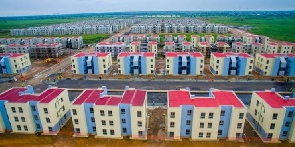By Kwame Okoampa-Ahoofe, Jr., Ph.D.
This is not the first time that we are hearing of Fulani cattle herdsmen doing mayhem in some towns and villages in the forest regions of Ghana. A couple of years ago, for instance, we learned of the distressful story of some nomadic Fulani cattle grazers roaming freely and recklessly and allowing their herds to lay waste to cultivated farmlands and polluting streams and rivers in the Akyem-Begoro area of the Eastern Region. Even more depressing were stories about these often armed herdsmen raping women returning from their farms in the areas where the local authorities had permitted some of them to graze and water their livestock.
In the latest reported incident, we learn of the gruesome decapitation of a Fulani herdsman in Asante-Akyem Agogo in the Asante Region (See “Fulani Man Beheaded in Agogo” Ghanaweb.com 6/16/11). We also learn that these seasonal migrants, for unspecified nominal fees, have been allowed to settle in these forest regions in order to readily access fodder – or provender – for their cattle. Significantly, though, such permission, we are told, is invariably accompanied by caveats against allowing their herds to stray into cultivated farmlands. Still, as to how any group of people with a sedentary existence can realistically expect a band of far less disciplined nomadic herdsmen to observe the rules of settled existence – to speak much less of civilized culture – is anybody’s good guess.
Indeed, it is the harsh and painful reality of the violent clash of two very different human, and African, cultures that we are presently witnessing. And this is where any wild-eyed and near-quixotic mantra such as the independence of Ghana being meaningless until it is linked up with the total liberation of the African continent becomes the veritable pipe-dream of the inebriate. In sum, at Asante-Akyem Agogo and all the other Fulani-besieged regions of Ghana, our independence ought to be jealously guarded against these “native barbarians” from the Savannah and Sahel enclaves of the West African sub-region.
To be certain, what the governments of the sixteen countries that make up the so-called Economic Commission of West African States (ECOWAS) ought to be doing is creatively devising a more productive means of settling these ancient nomadic herdsmen on lands specially developed as pastures and ranches for this significant sector of our agrarian economy. In much of the developed nations, this is how dairy farming is practiced; and, of course, it goes without saying that it is far more healthy, productive, profitable and protective. I have the gut feeling that such ranches and pasturelands could be best developed in the Sudanic or Savannah enclaves of the West African sub-region; and this, of course, could be readily duplicated elsewhere on the continent.
Let’s get down to brass-tacks: there is absolutely nothing genetic about the relatively unstable nomadic mode of existence. Like all other cultures, nomadic existence evolved by way of environmental adaptation. And this is precisely where African leaders ought to be demonstrating their leadership skills and acumen; for, needless to say, leadership is about problem solving. And on the latter score, our leaders have yet to remarkably live up to their nominal and functional designation.
The preceding problem is not very far removed from my personal experience growing up in Ghana in the late 1960s. I used to encounter similar hazards with Fulani cattle herdsmen and their herds whenever I visited my paternal grandmother, Nana Akua Yeboaa, affectionately called Auntie ’Kua, in Kyebi. It almost invariably happened quite early in the morning at the public latrine or “Amansan,” the universal human waste center. Our house, well-known throughout Kyebi as Aburaso, or The Well-Top, had been built on an aquifer. It was, therefore, inadvisable for us to have had a pit-latrine or even a septic tank in the backyard.
Aburaso was one of the few major spots for drawing water during the drought and long before potable piped water became fairly widely available in Kyebi. Anyway, the story that I wanted to tell my dear reader is that oftentimes one would be squatting on the public latrine, doing one’s goddamn good old thing when, before push could shoot a plop, a huge Ndama cow would barge in spoiling for a decidedly uneven fight. When this happened, one had no choice but to climb one of the walls separating one squat-hole from another or stand the risk of getting mauled by a giant cow. I don’t quite remember seeing or hearing about anybody having been crushed to death by a cow, though I vividly remember us children huffing and cussing under our breath those negligent – actually, sadistic is the more accurate word – Fulani herdsmen whenever any of us children had a close call.
At Agogo, though, the real story is far less about the grisly and outright savage decapitation of a Fulani herdsman; at Agogo, we also have what eerily appears to be a simmering low-level war between these seasonal migrants and the local inhabitants. I have great loathing for the rather invidious and faux-nativistic term of “indigene.” For when all is said and done, we are all humans and equally indigenous to Mother Earth. The problem of the Fulani herdsmen is, indeed, the problem of an abject lack of creative leadership in Africa. And the sooner our politicians wake up, the better stead it would stand us in a bid to nipping a looming apocalypse in the bud.
*Kwame Okoampa-Ahoofe, Jr., Ph.D., is Associate Professor of English, Journalism and Creative Writing at Nassau Community College of the State University of New York, Garden City. He is a Governing Board Member of the Accra-based Danquah Institute (DI) and the author, most recently, of “The Obama Serenades” (Lulu.com, 2011). E-mail: okoampaahoofe@optimum.net.
###
Opinions of Saturday, 18 June 2011
Columnist: Okoampa-Ahoofe, Kwame


















